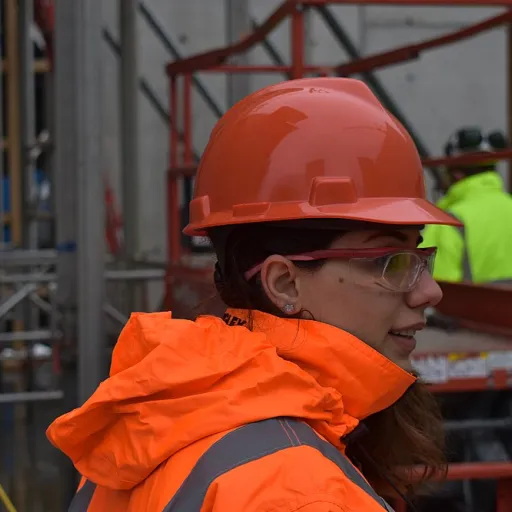
Revolutionizing the hiring process: The impact of automated recruiting software
Automated recruiting software has fundamentally changed the hiring process, offering advanced automation that streamlines recruitment for both candidates and recruiters. By integrating AI and machine learning, these platforms automate repetitive tasks such as job postings, resume screening, and interview scheduling, reducing manual workload and improving efficiency. The adoption of automation software in recruitment enables organizations to focus on strategic talent acquisition and candidate communication, enhancing the overall candidate experience.
Recruiting automation tools, such as CVViZ and Moka ATS, provide features like AI-driven candidate sourcing and applicant tracking, ensuring that the best recruiting practices are consistently applied. These tools are built to handle high volumes of applications, making the recruitment process more manageable and user friendly. With the ability to automate job postings and candidate engagement, recruiters can allocate more time to building relationships and evaluating top talent. The integration of mobile app functionality further supports on-the-go recruiting, ensuring that both recruiters and candidates benefit from a seamless, efficient process.
One of the most significant advancements is the reduction in time-to-hire, with platforms like Canditech reporting up to a 50% decrease. This efficiency not only benefits recruiters but also improves the candidate experience by providing timely feedback and streamlined communication. As organizations seek to attract the best talent, leveraging advanced automation and recruitment software becomes essential for maintaining a competitive edge in talent acquisition.
Key features and benefits of automated recruiting software
The features offered by automated recruiting software are designed to optimize every stage of the hiring process. Applicant tracking systems (ATS) are central to these platforms, providing robust tools for managing candidate pipelines and ensuring that no qualified candidate is overlooked. Recruitment automation features include automated resume screening, interview scheduling, and candidate communication, all of which contribute to a more efficient and effective recruitment process.
Recruiting software like Zoho Recruit and Recruit CRM offer advanced automation capabilities, including customizable workflows and integration with other HR tools. These platforms are built to support recruitment teams of all sizes, from small businesses to large enterprises, and often provide a free trial to allow organizations to evaluate their effectiveness. The best recruiting software solutions prioritize user friendly interfaces and mobile app access, making it easier for recruiters to manage their tasks from anywhere.
Interview scheduling is another critical feature, enabling candidates to select interview times that fit their schedules, reducing back-and-forth communication and improving the overall candidate experience. Automated job postings ensure that open positions are advertised across multiple channels, increasing the reach to potential talent. For more insights on optimizing your recruitment process, explore our comprehensive guide to recruitment automation.
Enhancing candidate experience through automation and communication
Candidate experience is a cornerstone of successful talent acquisition, and automated recruiting software plays a pivotal role in shaping this journey. By leveraging automation software, recruiters can provide timely updates, personalized communication, and transparent feedback throughout the hiring process. This level of engagement is essential for attracting and retaining top candidates, especially in competitive job markets.
Conversational AI, as seen in platforms like Paradox, enables real-time candidate communication and self-service interview scheduling, offering a user friendly and responsive experience. These tools are built to handle high volumes of candidate inquiries, ensuring that every applicant receives attention and support. The integration of mobile app features allows candidates to engage with the recruitment process on their preferred devices, further enhancing accessibility and convenience.
Recruitment automation also supports structured assessments and real-world simulations, as demonstrated by Canditech, which helps identify the best fit for each role. By automating routine tasks, recruiters can dedicate more time to building meaningful relationships with candidates and improving the overall recruitment process. For a deeper look at how automation transforms candidate engagement, read our article on candidate communication best practices.
Data-driven decision making and process optimization in recruitment
Automated recruiting software empowers organizations to make data-driven decisions, optimizing every aspect of the recruitment process. Advanced analytics tools provide insights into candidate sourcing, conversion rates, and time-to-hire, enabling recruiters to refine their strategies and improve outcomes. By leveraging recruitment automation, organizations can identify bottlenecks, measure the effectiveness of their job postings, and enhance the overall efficiency of their hiring process.
Applicant tracking systems (ATS) and recruitment software platforms like Zoho Recruit and Recruit CRM offer robust reporting features, allowing recruiters to monitor key metrics and adjust their approaches as needed. These tools are built to support continuous improvement, ensuring that recruitment teams can adapt to changing market conditions and talent demands. The integration of automation software with other HR technologies creates a seamless, end-to-end recruitment process that supports both recruiters and candidates.
For organizations seeking to maximize the impact of their recruitment efforts, adopting a data-driven approach is essential. Automated recruiting software provides the tools and insights needed to make informed decisions, optimize workflows, and deliver a superior candidate experience.
Balancing automation with human oversight in the hiring process
While advanced automation and recruiting automation tools offer significant benefits, maintaining a balance between technology and human oversight is crucial. Automated recruiting software can efficiently handle repetitive tasks, but human judgment remains essential for evaluating cultural fit and building authentic relationships with candidates. Recruitment automation should be viewed as a tool to enhance, not replace, the expertise of recruiters.
AI-driven platforms can help mitigate unconscious bias by standardizing evaluation criteria, yet ongoing monitoring is necessary to ensure fairness and accuracy in candidate assessments. The best recruiting software solutions incorporate features that allow for human intervention at critical stages of the hiring process, ensuring that decisions are made with both data and empathy. Platforms like Canditech and VidCruiter exemplify this balance by combining automated assessments with structured interviews led by experienced recruiters.
As organizations continue to adopt recruitment automation, it is important to prioritize transparency and ethical considerations. Providing candidates with clear information about how their data is used and ensuring that automation software is applied responsibly will build trust and enhance the overall candidate experience. The integration of human oversight ensures that the recruitment process remains personalized and effective.
Future trends and ethical considerations in recruitment automation
The future of automated recruiting software is shaped by ongoing advancements in AI, increased integration with HR technologies, and a growing focus on ethical considerations. As candidate matching algorithms become more sophisticated, organizations will be able to identify top talent with greater precision and efficiency. The personalization of candidate experiences through automation will become a key differentiator in attracting and retaining the best candidates.
Data privacy and security are paramount as recruitment software handles sensitive candidate information. Organizations must ensure that their automation software complies with relevant regulations and implements robust security measures. Ethical considerations, such as transparency in AI-driven decision making and the prevention of bias, will continue to influence the development and deployment of recruiting automation tools.
Workday's acquisition of Paradox highlights the industry's commitment to enhancing talent acquisition capabilities with conversational AI. As Gerrit Kazmaier, President of Product and Technology at Workday, stated: "By bringing Paradox's candidate experience AI agent into Workday, we're giving organizations a smarter, faster, and more engaging way to connect with candidates." Adam Godson, CEO of Paradox, added: "Workday's global reach and comprehensive platform provide the perfect runway for us to accelerate our mission, bringing our proven conversational ... ." These expert insights underscore the transformative potential of advanced automation in recruitment.
Case studies: Real-world success with automated recruiting software
Organizations across industries are experiencing tangible benefits from implementing automated recruiting software. Canditech's AI-powered assessments, for example, have enabled employers to reduce hiring time by up to 50% and eliminate up to 80% of unnecessary interviews. This level of efficiency not only saves time but also enhances the candidate experience by streamlining the recruitment process.
VidCruiter's recruitment automation platform has demonstrated significant cost savings, with organizations reporting up to 75% reduction in cost-to-hire. These results highlight the value of investing in advanced automation and recruitment software to optimize hiring outcomes. Platforms like CVViZ and Moka ATS further illustrate the impact of automation by providing user friendly interfaces, mobile app access, and comprehensive applicant tracking features.
Workday's integration of Paradox's conversational AI represents a strategic move to enhance talent acquisition and candidate engagement. These case studies demonstrate that the adoption of recruiting automation tools leads to measurable improvements in efficiency, cost savings, and candidate satisfaction. As the recruitment landscape continues to evolve, organizations that leverage the best recruiting software and advanced automation will be well positioned to attract and retain top talent.
Key statistics on automated recruiting software
- Reduction in time-to-hire: up to 50% with AI-powered assessments (Canditech).
- Candidate conversion rates: over 70% achieved by AI-driven platforms (Paradox).
- Cost savings on hiring: up to 75% reduction with automated software (VidCruiter).
Frequently asked questions about automated recruiting software
How does automated recruiting software improve the hiring process?
Automated recruiting software streamlines recruitment by automating repetitive tasks such as job postings, resume screening, and interview scheduling. This reduces manual workload, shortens time-to-hire, and enhances candidate communication, resulting in a more efficient and effective hiring process.
What are the key features to look for in recruiting automation tools?
Essential features include applicant tracking, advanced automation, interview scheduling, candidate communication, mobile app access, and integration with other HR tools. User friendly interfaces and customizable workflows are also important for optimizing the recruitment process.













